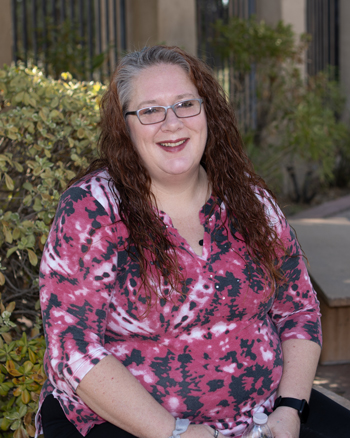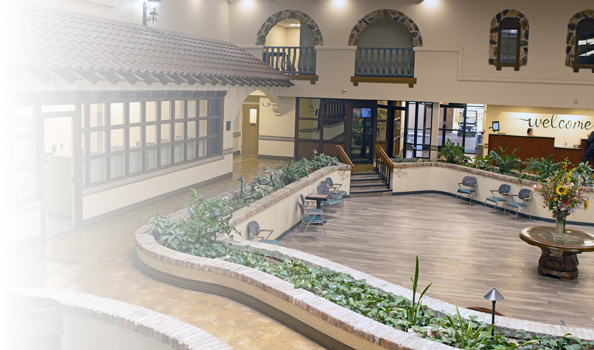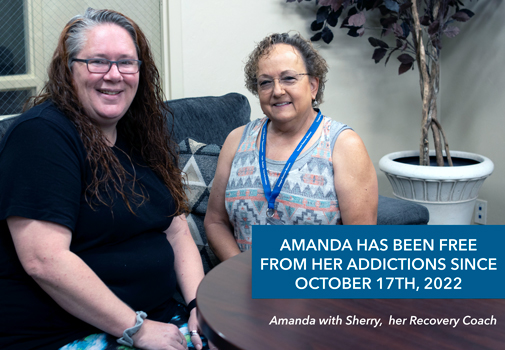This summer has been brutal and dangerous for those caught in the heat. Last month, Tucsonans suffered through 13 days of 110-plus-degree temperatures, breaking records with little relief. Tucson also had one of the latest monsoon storms in recent memory. It didn’t rain until July 17th, 32 days into the season. Yet, much like typical monsoon storms, the dark clouds rolled in swiftly, and the sudden and violent rains caused property damage, blackouts due to downed power lines, stranded motorists, and life-threatening flooding, especially for those experiencing homelessness.
But storms are not just forces of nature
 For more than 30 years, Amanda has been struggling with addiction. A self-described poly-substance abuser, she sought whatever combination of drugs, alcohol, behaviors, etc., to manage her emotions and make her feel better. Her pain was so profound that no amount of any one substance could help her cope with life.
For more than 30 years, Amanda has been struggling with addiction. A self-described poly-substance abuser, she sought whatever combination of drugs, alcohol, behaviors, etc., to manage her emotions and make her feel better. Her pain was so profound that no amount of any one substance could help her cope with life.
Her upbringing was horrific, leaving deep scars. As a child, Amanda suffered abuse and neglect from her family members, who also struggled with addiction. She started drinking and huffing to make her feel “10 feet tall,” but it was a temporary escape from her sadness and sense of worthlessness. And, as time went on, so did the substances. Amanda had started experimenting with meth by the time she was 18, and though she no longer felt good about the drug abuse, she couldn’t stop using. The strained relationship with her parents made things even more difficult. Amanda moved out of her mother’s house when she was old enough, and her life spiraled downhill.
Eventually, Amanda found herself without a home to call her own. And for more than 25 years, she lived without a stable home, struggling with her addiction, transitioning from one temporary living situation to another, and facing recurring periods of homelessness. But three years ago, she got extremely sick and was rushed to the hospital. For Amanda, that was the beginning—the beginning of hope.
Although she was in a three-week battle for her life, she started having recurring dreams that brought her a profound sense of hope and peace. Whenever she fell asleep, she dreamed of finding freedom and safety as she joyously ran around a Mexican-style villa filled with small buildings featuring red terracotta roofs and large windows. This strange villa had covered terraces and columns and a central courtyard. She didn’t understand the dream—she only knew it brought her hope for a better future.
brought her hope for a better future.
Shortly after Amanda recovered, she returned to life on the streets but never forgot the hope she had found. About a year ago, while staying in a tent in Las Cruces, New Mexico, she met a woman who was alone and needed help. Amanda offered what support she could, inviting her back to the campsite for a place to stay, but the flies and mosquitoes were relentless. Together, they decided to travel to Tucson, Arizona, where Amanda’s new friend could reconnect with family and friends. But when they arrived in Tucson, they again found themselves without adequate and safe shelter.
That is until Amanda found out about Gospel Rescue Mission. And when Amanda first walked into the main lobby at the Center of Opportunity, she immediately fell to her knees, completely overcome by what she saw—low buildings with red terracotta roof tiles, columns, and a tree in the central courtyard.
It was her dream!
Amanda was shaking. Immediately overwhelmed. Emotional. She was experiencing a divine appointment!
Pastoral Care volunteers came to her side and ministered and prayed with her. And she gave her life over to God.
 For the first time in her life, Amanda felt safe. And she entered our Recovery Program. “I started running free in this place with so much peace. And so much awe. You know. He gave me freedom and liberty. I needed consistency. I needed safety. I hadn’t had safety—
For the first time in her life, Amanda felt safe. And she entered our Recovery Program. “I started running free in this place with so much peace. And so much awe. You know. He gave me freedom and liberty. I needed consistency. I needed safety. I hadn’t had safety—
I don’t think ever. I’ve been trying to find and seek out safety. And I thought I could do it through friends. I thought I could do it through drugs or partying. But it wasn’t until I got here that I realized this was what I needed all along. You know. I needed God. I needed consistency. I needed structure. I needed somebody to tell me, ‘You’re worth it!’”
It’s important to note that “polysubstance abuse” (as with all types of addiction) is a complex issue that often indicates a deeper underlying problem, such as unprocessed traumas, mental health issues, or a lack of healthy coping mechanisms. Effective treatment and support typically involve addressing these underlying factors and providing comprehensive care tailored to each individual’s needs, so we walk alongside our guests to provide holistic care–mind, body, and spirit–building authentic relationships to offer practical and life-long treatment so that everyone who walks through our doors can find wholeness.
